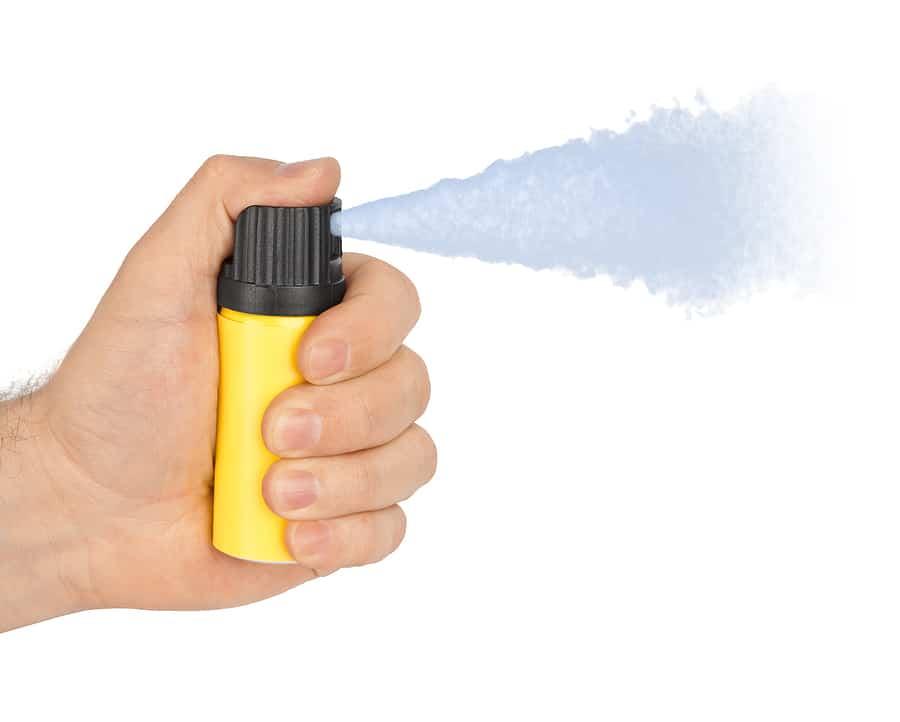Table of Contents
- Immediate Actions to Take After Being Sprayed for Fast Relief
- Effective Cleaning Techniques to Remove Irritants Safely
- Home Remedies and Products That Can Soothe Discomfort
- When to Seek Medical Attention Following Exposure
- Final Thoughts
Immediate Actions to Take After Being Sprayed for Fast Relief
As soon as you realize you’ve been sprayed, move to a well-ventilated area immediately to reduce exposure to lingering irritants. Avoid rubbing or touching the affected area, as this can worsen irritation or spread the substance further. If the spray is in your eyes, rinse them gently with cool, clean water for at least 10 to 15 minutes to flush out any residue and alleviate discomfort.
Next, carefully remove any contaminated clothing without allowing it to contact other areas of your skin. Wash the exposed skin thoroughly using mild soap and lukewarm water, taking care to avoid scrubbing which might irritate the skin further. Applying a cool compress can help reduce swelling and soothe inflammation. Finally, keep an eye on symptoms; if you experience persistent pain, breathing difficulties, or severe reactions, seek medical attention promptly.
- Relocate to fresh air to minimize irritation
- Flush eyes with water if necessary
- Remove contaminated clothing carefully
- Gently wash affected skin with soap and water
- Use cold compresses to reduce swelling
- Monitor symptoms closely and consult a doctor if needed
Effective Cleaning Techniques to Remove Irritants Safely
When faced with the urgent need to remove irritants from your skin or eyes, acting swiftly and correctly can significantly reduce discomfort and prevent complications. Begin by gently flushing the affected area with lukewarm water, allowing the flow to wash away the irritant rather than rubbing or scrubbing which can exacerbate the situation. For eye exposure, use a clean, steady stream of water or saline solution for at least 15 minutes while keeping your eyelids open. If the irritant is on your skin, remove any contaminated clothing and rinse thoroughly, focusing on creases and folds where irritants may linger.
Effective cleaning also involves using mild, fragrance-free soaps to cleanse the skin after initial rinsing, helping to ensure that residues are fully removed without causing further irritation. Avoid harsh chemicals or abrasive materials, as these can damage sensitive tissue. For nasal or oral exposure, gently rinsing with a saline spray or water can help clear away particles. Remember to always wash your hands thoroughly after cleaning to prevent re-contamination or spread to other areas.
- Use gentle, continuous water flow for rinsing
- Avoid rubbing or scrubbing the affected area
- Remove contaminated clothing promptly
- Utilize mild, hypoallergenic soaps when necessary
- Protect your hands with gloves if additional cleaning is required
Home Remedies and Products That Can Soothe Discomfort
When dealing with the aftermath of an accidental spray, immediate relief is often within reach using simple home remedies. One of the most effective first steps is rinsing the affected area gently with cool water-this helps dilute the irritant and reduce burning sensations. Applying a cold compress or a clean, damp cloth can further alleviate inflammation and numb discomfort naturally. For persistent irritation, a mild solution of diluted aloe vera gel or chamomile tea applied topically may promote soothing and healing due to their anti-inflammatory properties.
In addition to these natural approaches, some over-the-counter products can be invaluable. Look for topical creams or gels containing hydrocortisone or lidocaine to temporarily reduce itching and pain, but be sure to follow guidelines for safe usage. For eye exposure, specially formulated saline eye drops can flush out irritants without causing further damage. Always avoid harsh soaps or aggressive scrubbing, as these can exacerbate sensitivity. Remember, if symptoms worsen or persist beyond a day, seeking medical advice is crucial.
- Cool, gentle rinses with water
- Cold compress to reduce swelling
- Aloe vera gel or chamomile tea for natural soothing
- Hydrocortisone or lidocaine cream for topical relief
- Saline eye drops for eye irritation
When to Seek Medical Attention Following Exposure
Not all exposures require a visit to the emergency room, but it’s vital to recognize when professional medical help is necessary. If you experience persistent coughing, difficulty breathing, severe eye pain, or blurred vision after being sprayed, these symptoms indicate a more serious reaction that should not be ignored. Additionally, if you notice swelling, intense skin irritation, or if the substance was ingested or entered a wound, prompt evaluation by a healthcare provider is crucial to prevent further complications.
Sometimes, symptoms may not develop immediately, so monitor yourself closely in the hours following the exposure. If you have underlying respiratory conditions such as asthma, or if the substance involved is known to be highly toxic, err on the side of caution. When in doubt, seek medical advice. Here are some quick checkpoints to consider:
- Uncontrolled burning or stinging sensations that worsen over time
- Dizziness, nausea, or vomiting after exposure
- Any sudden changes in vision or persistent eye redness
- Signs of an allergic reaction, including rash, swelling of the face or throat, and difficulty swallowing
Final Thoughts
In the end, accidents happen-especially when it comes to unexpected sprays. The key is to stay calm, act quickly, and follow the steps outlined in this guide to minimize discomfort and potential harm. Whether it’s pepper spray, insect repellent, or another substance, knowing what to do can make all the difference. Keep this quick reference handy, and you’ll be better prepared to handle these situations safely and confidently. Stay safe out there!Check Our Other Blogs
- StunGun – Your Trusted Source for Stun Guns, Laws, and Self-Defense Tips
- PepperSprayLaws – Your Trusted Resource for Pepper Spray Information
- StunGunLaws – Your Trusted Guide to Stun Gun Legality and Safety




